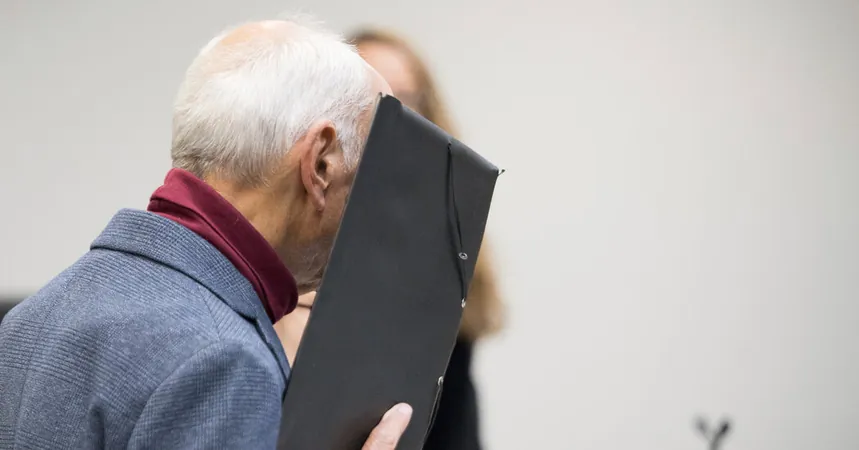
Shockwaves of Justice: 50 Years After a Cold War Murder, Stasi Officer Convicted in Berlin
2024-10-15
Author: Kai
Shockwaves of Justice: 50 Years After a Cold War Murder, Stasi Officer Convicted in Berlin
In a haunting echo of the Cold War's turbulent history, a Berlin court has delivered a landmark ruling against an East German Stasi officer for his role in a murder that transpired almost half a century ago. Manfred Naumann, now 80, was found guilty of murdering Czeslaw Kukuczka, a desperate man attempting to escape to West Germany, and has been sentenced to 10 years in prison.
The trial unearthed painful memories for those who witnessed the chilling event on March 29, 1974. The survivors, now retired women who were schoolgirls at the time, recounted the terror of seeing a man shot before their eyes. "It changed us forever," one witness reflected tearfully, underscoring the enduring impact of that traumatic day.
Naumann had lived in anonymity for decades, having blended into everyday life in Leipzig. However, this trial, nearly 35 years post-Berlin Wall's fall, serves as a crucial reminder of the Stasi’s far-reaching influence and brutality. At its peak in 1989, the Stasi employed around 91,000 full-time agents and had a network of 180,000 informants, all contributing to a culture of fear and surveillance that stifled dissent for years.
While Kukuczka's murder was initially overlooked, interest surged in 2016 after historian Dr. Appelius stumbled upon details within the Stasi records. His findings, published in a notable magazine, revealed the neglected case to the public, sparking outrage and renewed legal interest, particularly from Kukuczka's family in Poland who had remained in the dark about his fate.
During the chaotic circumstances surrounding Kukuczka's escape attempt, he had entered the Polish Embassy claiming to possess an explosive device in a desperate plea for passage to the West. Polish officials initially assured him of safe passage, but his fate took a tragic turn when Stasi agents intervened.
Eyewitnesses later described the shocking scene as Kukuczka was shot in the back by Naumann — the well-dressed officer who had blended into the crowd. This violent act took place mere moments after Kukuczka had cleared passport control at the Friedrichstrasse station, a critical point for travelers daring to cross the Iron Curtain.
Eventually, three young girls from West Germany who had been at the station provided testimony, ensuring that the incident would not entirely fade from memory. Though their accounts did not immediately prompt action, they played a role in keeping the story alive in the eyes of the public.
The court's decision on Monday is hailed as a significant development for victims of the Stasi and their families. "This verdict sends a powerful message that justice can still be served, even decades later," commented Dr. Appelius, emphasizing the importance of accountability for the past atrocities committed under the regime.
As Germany grapples with its historical legacy, the conviction of Naumann may be a step toward acknowledging the suffering caused by a policing agency that thrived on fear, coercion, and violence. It serves as a potent reminder of a divided nation still healing from the scars left behind by an oppressive regime. This singular case revives discussions among historians and citizens alike about the true cost of the Cold War and the importance of confronting dark chapters of history to pave the way for genuine reconciliation.


 Brasil (PT)
Brasil (PT)
 Canada (EN)
Canada (EN)
 Chile (ES)
Chile (ES)
 España (ES)
España (ES)
 France (FR)
France (FR)
 Hong Kong (EN)
Hong Kong (EN)
 Italia (IT)
Italia (IT)
 日本 (JA)
日本 (JA)
 Magyarország (HU)
Magyarország (HU)
 Norge (NO)
Norge (NO)
 Polska (PL)
Polska (PL)
 Schweiz (DE)
Schweiz (DE)
 Singapore (EN)
Singapore (EN)
 Sverige (SV)
Sverige (SV)
 Suomi (FI)
Suomi (FI)
 Türkiye (TR)
Türkiye (TR)